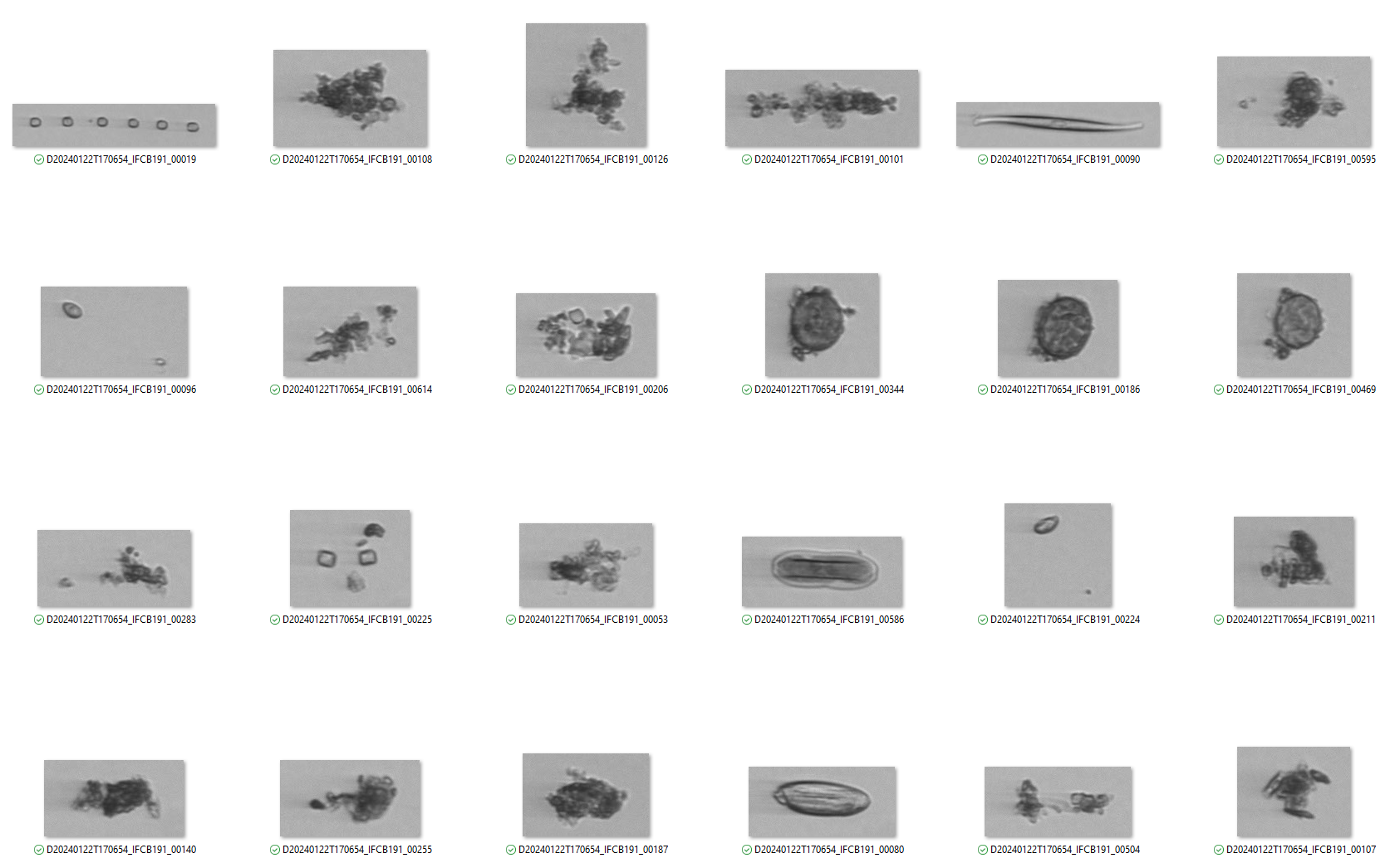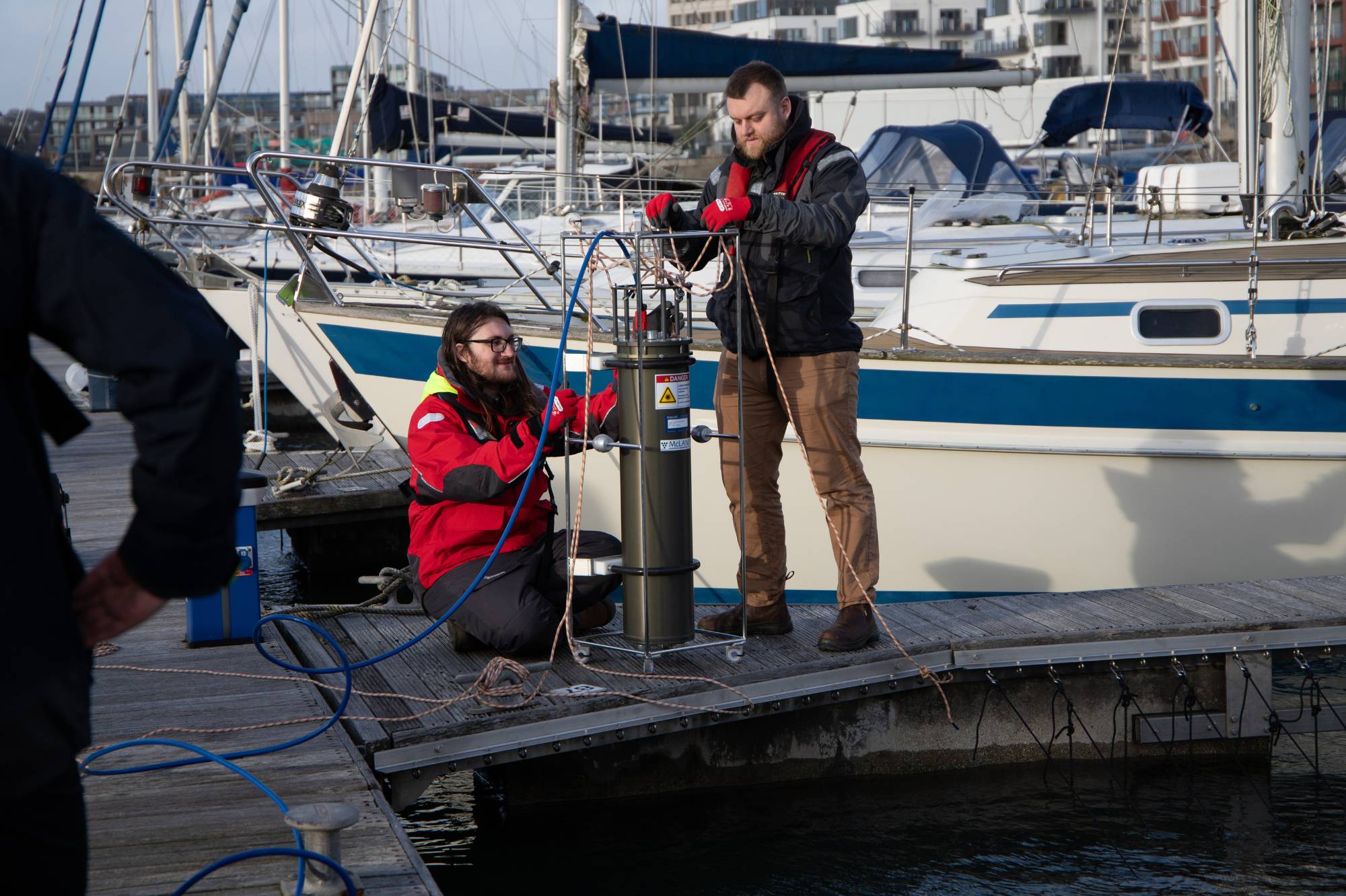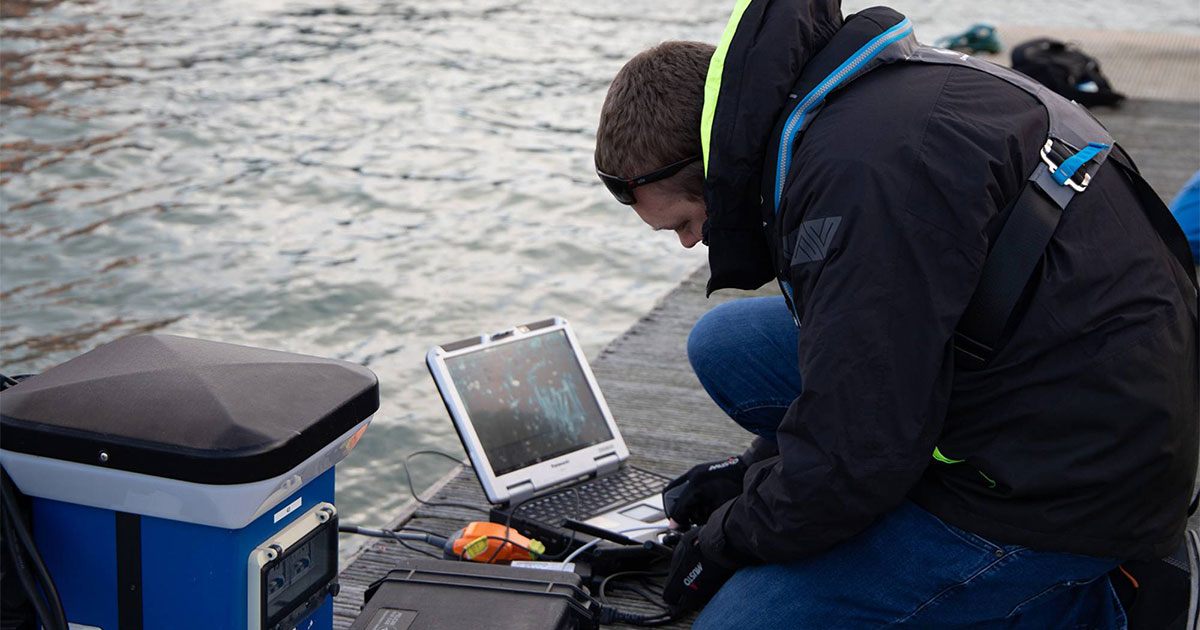Plymouth Marine Laboratory (PML) scientists took their new Imaging FlowCytobot down to the local Millbay Marina last week for their first-ever test of the equipment in real sea conditions. Despite the murky waters, some fantastic images of various plankton species came through. Be the first to see what microscopic beasties it found…
PML’s Imaging FlowCytobot (IFCB) was manufactured by McLane Research Laboratories in the US. It is an ultra-advanced piece of equipment that will be used in long-term, autonomous deployments at sea—imaging microscopic plankton off the south coast of the UK. The images will be classified back at PML and used to track changes in the composition of plankton communities in the English Channel.
Purchased using Natural Environmental Research Council (NERC) Capital funding, it forms part of a new Automated, in situ Plankton Imaging and Classification System (APICS) which will be deployed at our L4 monitoring site, where it will join a suite of complementary state-of-the-art scientific instruments.
Scientists are trialing the equipment ahead of its deployment in the Spring. Previously, it has only been used in the laboratory, where it has been processing samples of sea water from L4 and imaging the plankton found in those samples.
Following successful trials in the laboratory, the team has now moved on to the next stage - operation in real sea conditions—and as such, took the IFCB down to our local Millbay Marina for a controlled test deployment.
The IFCB was deployed at Millbay Marina for 72 hours, during which time it collected more than 18,000 images. Despite some murky water conditions, it took some fantastic images of the local plankton, some of which you can see below.
 (Image credit: Plymouth Marine Laboratory)
(Image credit: Plymouth Marine Laboratory)
IFCB technical lead Claire Widdicombe commented: “The images show quite a lot of detritus, but also numerous different phytoplankton species. I’m delighted with the results from the first real test for our IFCB!”
“What’s so special about the IFCB is its ability to autonomously image plankton across a broad size range, covering <10 μm to 150 μm [micrometers]. The scale is comparable to the diameter of a human hair. Typically, to collect plankton data, we would need to take samples of seawater into the lab, and then manually photograph and identify plankton with a microscope—but the IFCB does this for us, autonomously imaging plankton at sea. The data is then wirelessly sent back to the laboratory, where organisms can be automatically identified using machine learning models.”
“The IFCB will collect data continuously in-situ at our L4 monitoring site and will allow us to monitor changes in plankton communities on hourly time scales, as compared with the weekly time scales we are restricted to at present.”
APICS project lead, Dr. James Clark, said of the deployment: “This has been a crucial step—and a successful step—in the journey to deploying our plankton imaging equipment later this year. The IFCB will be joined by a second plankton camera called the ‘Plankton Imager,’ which is being manufactured by Plankton Analytics in the UK. The combination of instruments will allow us to autonomously image in-situ plankton that range from 10 μm up to 20 mm in size. To the best of my knowledge, having a single autonomous platform image such a broad size range this will be a world first. Both cameras will be suspended below a new, bespoke buoy which is being supplied by Hydrosphere UK.
 Marine technologists Kieran and Ross secure the IFCB before lowering it into the water. (Image credit: Plymouth Marine Laboratory)
Marine technologists Kieran and Ross secure the IFCB before lowering it into the water. (Image credit: Plymouth Marine Laboratory)
“Plankton sit at the base of the marine food web and, despite their small size, ultimately support all other forms of life in the ocean. The data from APICS will allow us to better monitor the health of plankton communities in UK waters and will support the work of plankton researchers around the world.”



